Exploring Dong Van Ancient Town: A Hidden Gem of Ha Giang
Many tourists pass past Dong Van Ancient Town, a gem hidden in Northern Vietnam’s hilly environment. Part of the Ha Giang Province, this little town is a wonderful window into the rich fabric of Vietnamese history and culture. Let MOTOGO Tours discover this site’s rich legacy, culture, and breathtaking scenery.
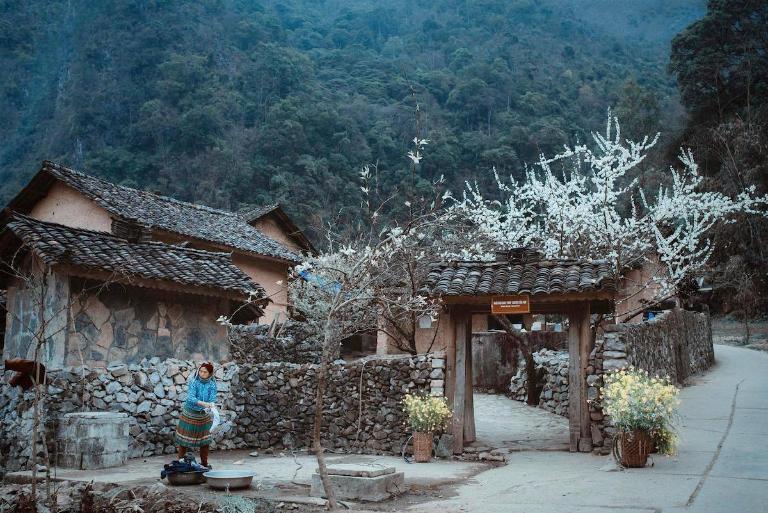
Historical Background of Dong Van
Dong Van’s past is as complicated as the surroundings’ terrain.
Origins of Dong Van
Dong Van was first founded as a trading station centuries ago in the late 19th century. Its prime position made it a hive for traders heading between Vietnam and China, generating a mix of cultures still felt today. Strolling around the town, you could sense the echoes of traders negotiating items in the busy markets.
Cultural Significance
Beyond only its historical significance, Dong Van is evidence of the local people’s resiliency. In 2010 the town was named a national historic site for its architectural and cultural value. Many of the traditional homes, which were constructed of mud bricks and wood, mirror the distinctive architectural forms of the several ethnic groups by highlighting rich colors and complex patterns.
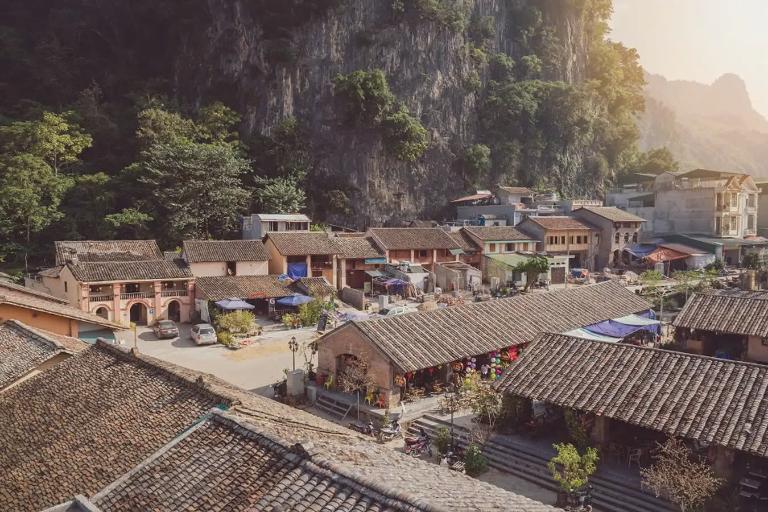
Getting to Dong Van Ancient Town
Dong Van Ancient Town is one of must-visit destinations in Ha Giang. Arranging a visit to Dong Van can be thrilling yet intimidating. This is everything you need to know to have a seamless travel.
Best Time to Visit
September to December is the ideal season to visit Dong Van since the mild, dry weather there is ideal for appreciating the natural surroundings. The golden rice fields cover the valleys during this time to produce a beautiful scene fit for outdoor activities and photography.
How to Get There Reaching
Dong Van can be an adventure right by itself. Most visitors begin their journey from Ha Giang City, about 150 kilometers distant. The route presents amazing vistas of terraced rice fields and rocky mountains. Renting a motorbike can allow you an exciting sensation of freedom as you negotiate the twisting roads if you’re game.
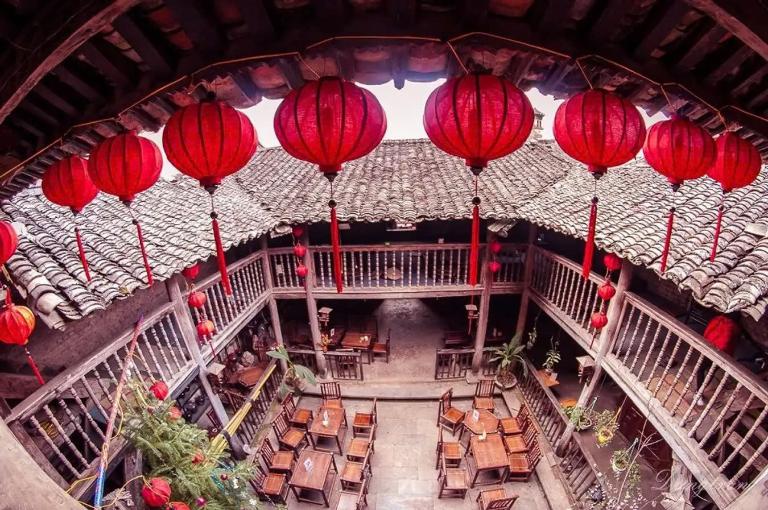
In addition, to enhance your experience, you can choose guided tours like Ha Giang Loop. They will provide a comprehensive overview of Dong Van Ancient Town’s history and significance.
>>> Let’s see: When is the Best Time to Visit Ha Giang? Discover the Ideal Seasons
Exploring Dong Van Ancient Town
Every angle of view at Dong Van Ancient Town reveals a bit of history, culture, and natural beauty. Set against spectacular mountain settings, this little town has a special fusion of architecture, energetic marketplaces, and breathtaking views.
Architectural Wonders
Reflecting the rich history and varied cultural influences of Dong Van, the architecture there is a fascinating mix of traditional and colonial forms. A tapestry of vibrant homes that bear witness to the town’s historical importance will meet you as you meander through the little, twisting lanes.
Unique Houses
Dong Van’s old houses are amazing, distinguished by their original building techniques and materials. Built with mud bricks, wood, and stone, most of these houses are meant to survive the severe weather of the area. The native Hmong culture is reflected in the vivid colors and detailed carvings on the frontages.
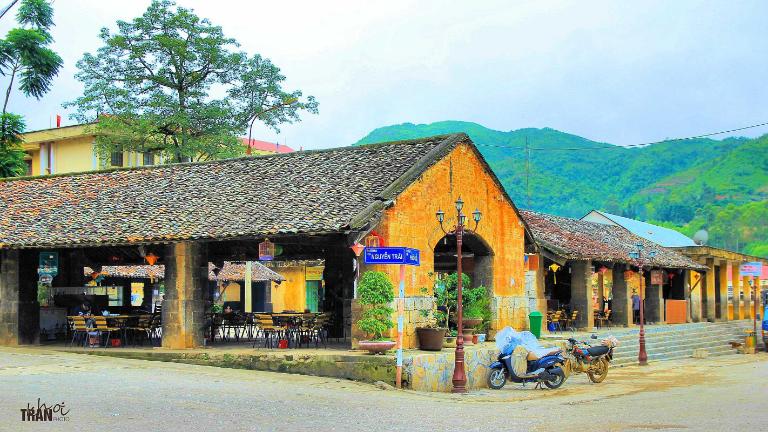
The town’s arrangement itself is among the most amazing features of the architecture. Families congregate around a central courtyard in the middle of the residences to exchange meals and tales. This shared living environment invites guests to interact with residents and see their daily life, therefore strengthening community and belonging.
Historic Sites
Without seeing Dong Van’s historic places, a visit would not be whole. Center of the town, the Dong Van Market is a hive of activity every Sunday. Locals from several ethnic backgrounds gather here to market their products, which range in kind from handcrafted goods to fresh food. Apart from providing a window into the daily life of the people, the market exhibits the rich tapestry of cultures gathered in this area.
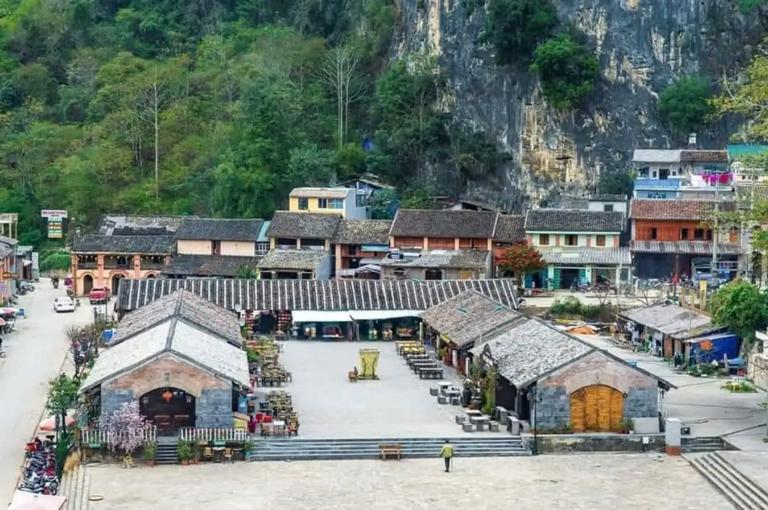
The Old Quarter, where remains of French colonial architecture mixed with native Vietnamese dwellings, is another important historic site. These buildings reflect the effects that have molded Dong Van throughout the years and chronicle its past as a trading post.
Local Markets and Cuisine
Dong Van’s local markets are sensory feast for you. Exciting and friendly environment is created by the vivid colors, seductive smells and energetic conversation. The market is an experience that enmesheses you in the local culture, not only a place to buy.
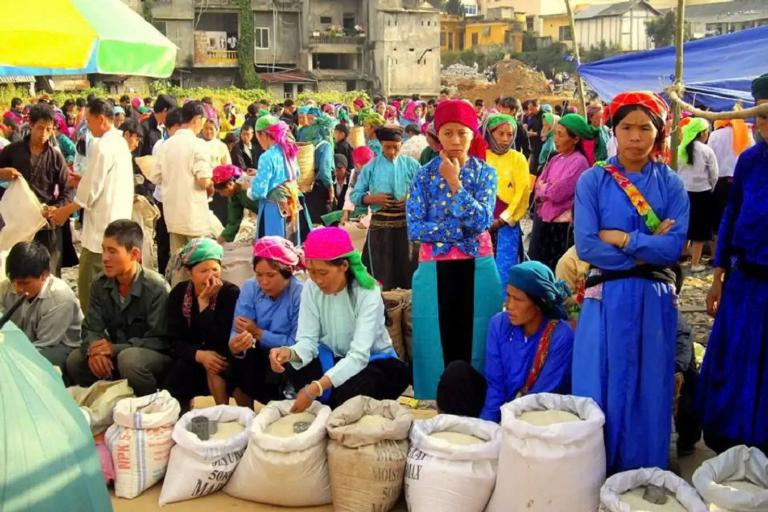
Among the items the merchants have are fresh fruits, veggies, handcrafts, and traditional fabrics. Unique mementos representing the work of the nearby communities abound: hand-carved wooden objects and finely woven bags.
Culinary Delights
Another must not be missed is Dong Van’s gastronomic scene. The town is well-known for its distinctive cuisine that captures the local rich tastes. Made from horse flesh, organs, and a mix of spices, Thang Co is a traditional Hmong meal one of the must-try foods. Usually presented with rice, it is a regional specialty attracting both residents and visitors.
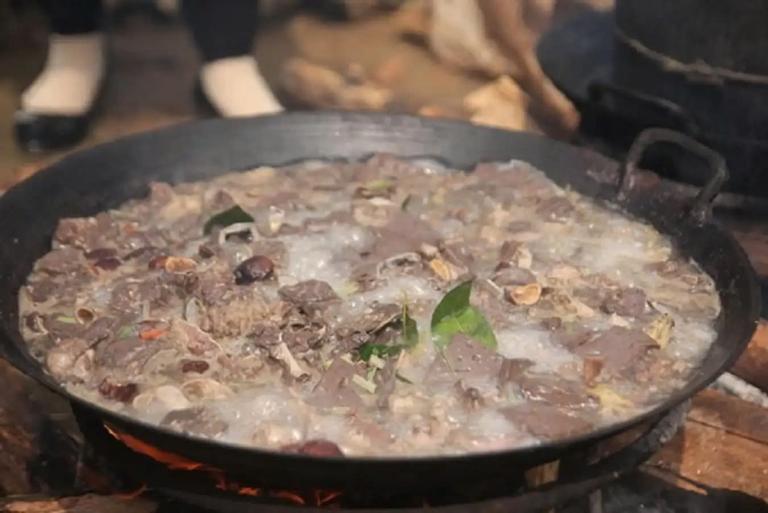
Often served with a side of fish sauce, another well-liked meal is Dong Van rice rolls, a steamed rice roll stuffed with minced pork and mushrooms. Though modest, the flavors provide a taste of the gastronomic legacy of the area. Eating in neighborhood restaurants not only fills your stomach but also helps you to better understand Dong Van’s customs and culture.
Activities in Dong Van Ancient Town
Dong Van Ancient Town presents a range of events to appeal to cultural vultures, history aficionados, and adventure seekers equally. There is something for everyone from hiking in breathtaking settings to interacting with the nearby populations.
Photography Opportunities
If you enjoy taking pictures, Dong Van presents lots of chances to capture the natural beauty and ethnic vitality of this area. Particularly when viewed against the untamed mountains, the traditional Hmong homes with their unique architecture create amazing subjects. Another photographer’s paradise, the Sunday Market allows you to picture vivid sights of local life—women in vivid traditional clothing, sellers offering fresh produce, and busy throng negotiating commodities.
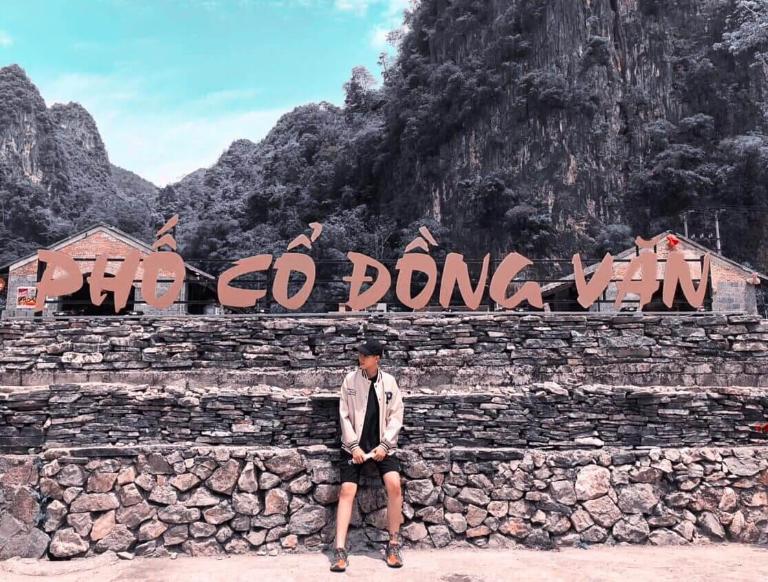
Golden hour, especially around sunrise and sunset, soft, ethereal light colors the surroundings, enhancing the majesty of the surrounding terraced fields and karst formations. You probably wish to take many pictures of this beautiful area, thus be sure to pack additional memory cards and batteries.
Exploring the Dong Van Market
Dong Van wakes every Sunday with its energetic Sunday Market. Attracting ethnic minorities from surrounding towns such the Hmong, Tay, and Dao, this market is among the most important cultural events in the area. Apart from a location for residents to trade, the market is a vibrant social gathering where families get together, share tales, and enjoy the festive mood.
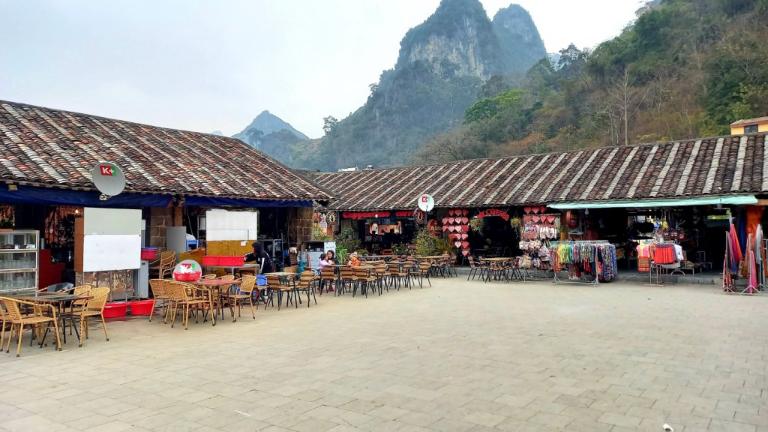
From local handicaps, clothes, and textiles to fresh food and animals, the market offers a range of goods. Another must is sampling the neighborhood street cuisine; try some freshly grilled meats and sticky rice or the traditional Hmong meal, Thang Co.
Discovering the Attractions Near Dong Van Ancient Town
Tham Ma Pass
One of the most difficult and exciting highways in northern Vietnam, Tham Ma Pass runs on National Highway 4C between Yen Minh and Dong Van areas. Popular for thrill seekers, the five-kilometer twisting road boasts nine hairpin turns. Visitors can stop on the hill to take in breathtaking views and learn the intriguing stories around this old path.
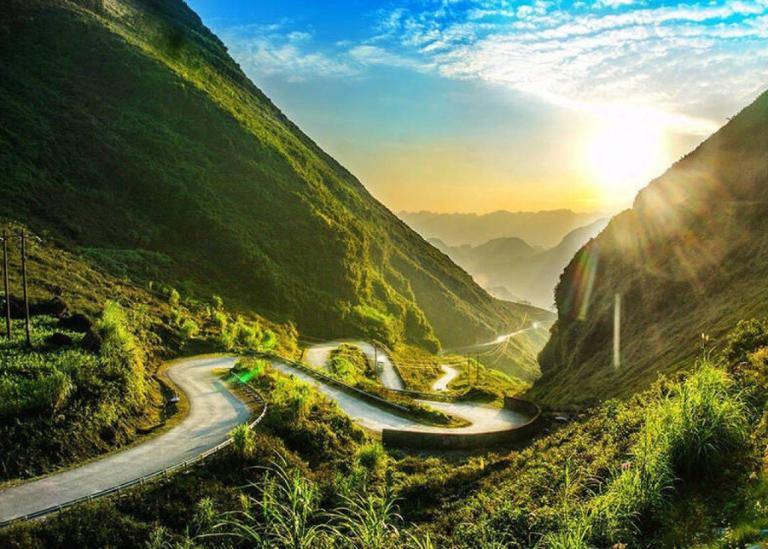
>>> Explore Bac Sum Pass: Discover Ha Giang’s Stunning Mountain Road
The Hmong King Palace
The Hmong King Palace located along National Highway 4C, is 13 kilometers from Dong Van Ancient Town. Constructed over eight years, this architectural masterpiece from the early 20th century finds influence in Qing era architecture. Covering 1,120 square meters, the mansion’s turtle shell-like form represents lifespan.
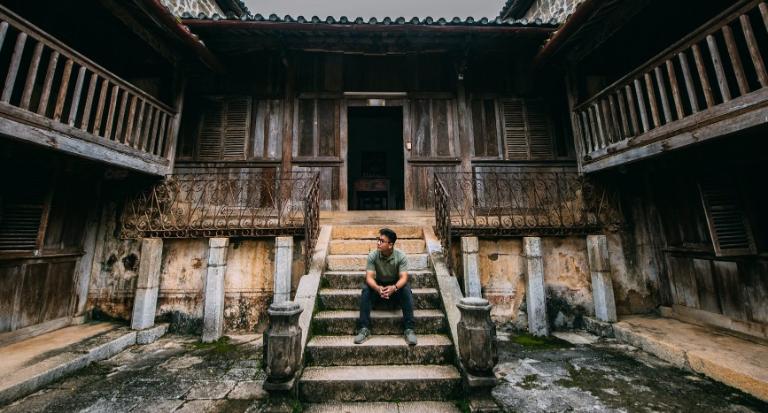
Two stone walls with watchtowers and loopholes surround it from tall sa moc trees. Three wooden stilt buildings make up the estate; the main house faces the gate while two parallel side houses flank it perpendicularwise. Made from valuable lumber, the exquisite workmanship is evident in the finely detailed woodwork utilized for beams, flooring, ceilings, and columns.
Nho Que River
Beginning in Yunnan, China, the Nho Que River runs through Meo Vac and Dong Van regions of Vietnam before emptying into the Gam River near Cao Bang. It is 46 kilometers long inside Vietnam, from Lung Cu via the famous Ma Pi Leng Pass and through the imposing Tu San Alley cliffs.
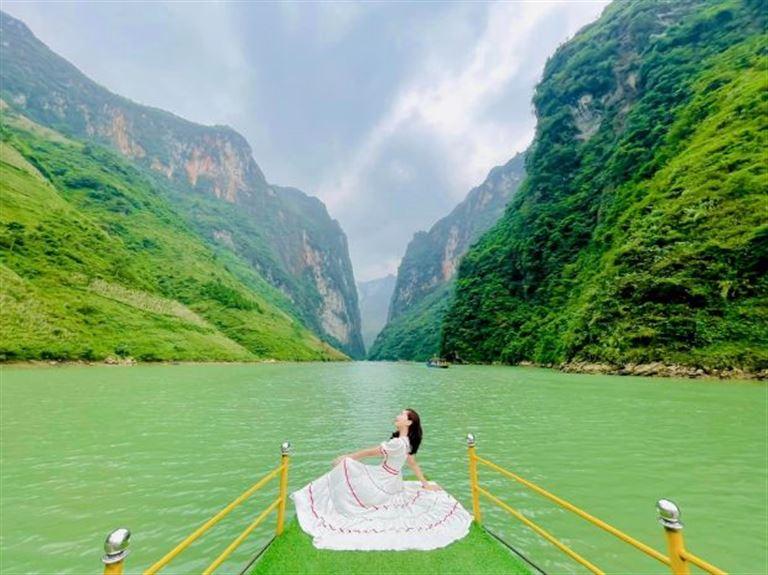
The vivid jade-green waters of the river, which glitter all year long, are among its most unique characteristics. With rental rates ranging from 50,000 VND to 150,000 VND, depending on the type of boat, local tourism organizations have lately added boat cruises and kayaking experiences for visitors to discover this natural beauty.
Lung Cu Flag Tower
Rising boldly 1,470 meters above sea level on Dragon Mountain, the Lung Cu Flag Tower is a national pride symbol. Rising more than 30 meters tall, the octagonal form of the historic monument now reflects the new version opened on September 25, 2010. Rising at the top is a 9-meter flagpole bearing the national flag of Vietnam, 54 square meters reflecting the 54 ethnic groupings of the nation. Viewers from the top of the tower can look down over two dragon-eye ponds kept full year-round.
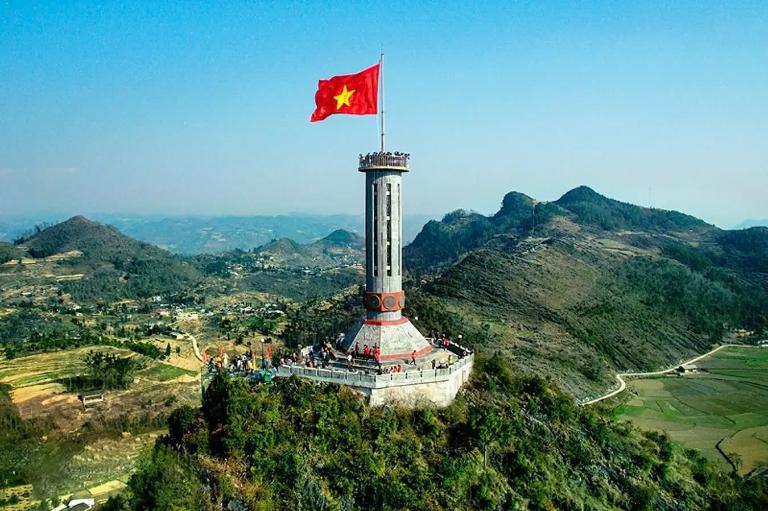
The Buckwheat Flower Fields of Sung La
Nestled among rocky limestone cliffs, the village of Sung La appears like a picture straight out of a fairytale, some 20 kilometers from Dong Van town. One of the most beautiful locations to view this unusual bloom in Ha Giang is the high mountain slopes where the Hmong people living here typically grow buckwheat flowers. October to November is the best time to visit when pinkish-purple flowers cover the slopes.
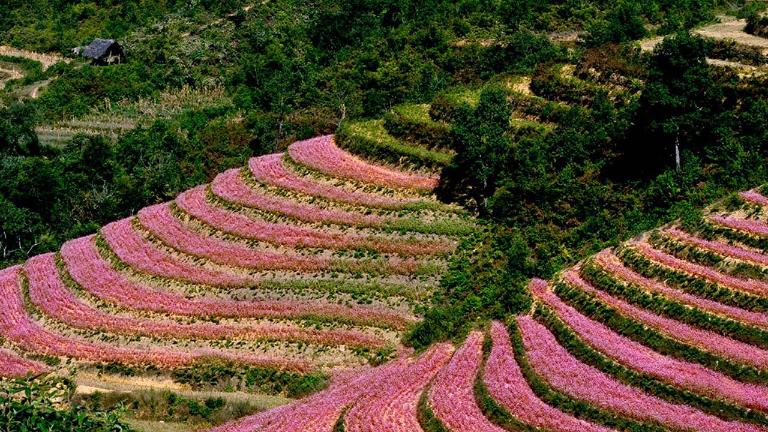
The House of Pao
Found also in Sung La, “The House of Pao” is a 1947 typical Hmong house. The mansion is well-known as the movie “The Story of Pao” filming site. Featuring a courtyard in the middle and a stone-paved front yard surrounded by plum, apricot, and peach trees—typical vegetation of the area—its unique architecture symbolizes the traits of the Hmong people living on the rocky plateau.
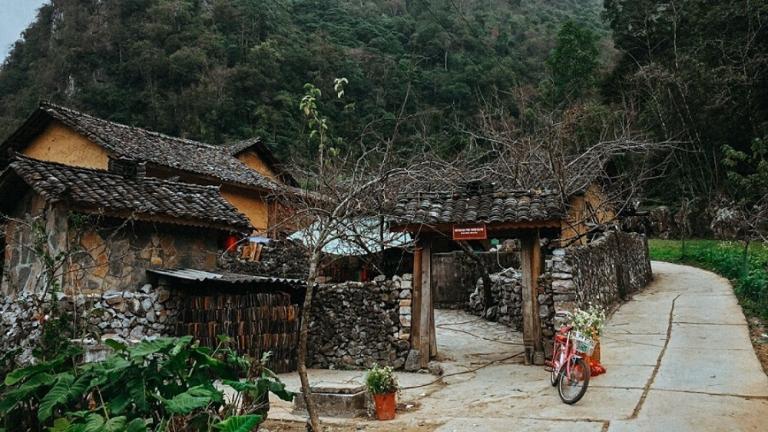
Dong Van Ancient Town is a cultural immersion experience that stays with you rather than merely a location. Don’t miss the opportunity to find the hidden gem Dong Van Ancient Town offers if you are organizing your next trip in Vietnam. Prepare for a trip of a lifetime by packing your bags, grabbing your camera!
Related posts:
- The Simple Beauty of Buckwheat Flower Valley in Ha Giang
- Thon Tha Village: A Serene Haven at the Foot of Tay Con Linh
- Nam Dam Village: A Timeless Haven of Cultural Harmony
- Tien Waterfall – Gio Pass: A Hidden Gem in Ha Giang
- Sung Khanh Pagoda Ha Giang: The Gateway to Vietnam’s Spiritual Heritage








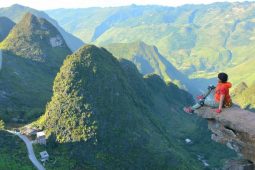
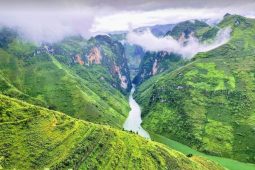
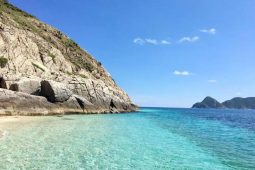
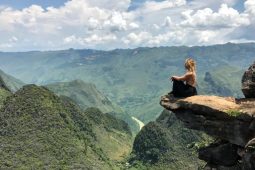
Be the first to comment!